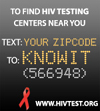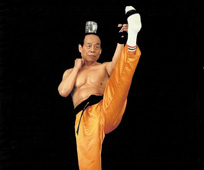| May: Asian American / Pacific Islander Heritage Month
|
Jhoon Rhee is called Master, and a Master he is. He has mastered fame, power, body, mind, a life of purpose and the secret to happiness. Master Rhee's priority is helping others achieve balance, so he formed the 100-21 Club, "one hundred years of wisdom in a 21-year old body." If you ask him what he teaches, he says:
"True education begins with physical education that develops a vibrant and strong body at an early age. Then, motivate our children for a happy life by teaching the purpose of life, the way to achieve the purpose, and how to enjoy it during the process."
As we celebrate Asian American and Pacific Islander Heritage Month this May, we reflected on a conversation that we had with Master Rhee-acknowledged world-wide as the Father of American Tae Kwon Do-who remains very active in his community, and has become a role model and an educator in its truest sense: someone who brings out the very best in his students.
We first met Master Rhee when he was the keynote speaker at the closing ceremony celebrating Asian Pacific Islander Heritage Month a couple of years ago. Flexibility, muscle strength, and balance were the measures of health in the then 73-year-old body that had recently endured open heart surgery.
To the astonishment of everyone present, he showcased his physical abilities by doing 100 push-ups in a minute, as well as his mental stamina, all while recovering from the surgery that took place just twelve weeks before. He emphasized the need for physical activity, discipline, and self-control to attain perfect health and a long and healthy life.
When did you learn you had a heart problem? How did you feel about it? How was it communicated to you?
Master Rhee: I was dancing on December 20, 2003, at one of many Christmas parties and I felt discomfort in my chest. I told my wife about it. My wife, who is a Registered Nurse, immediately made an appointment for me to be examined by my heart doctor. I had open heart surgery on February 12 for ten hours. They found out I was born with a heart murmur. So I had one valve replaced with a pig valve and another repaired. I also had two by-passes and a stroke.
Since the practice and teaching of martial arts is one of the greatest loves of your life, did you fear at any point, the discontinuation of your career? Have these heart problems affected your practice or impaired your abilities?
Master Rhee: The fear that my teaching will stop never entered my mind. I knew I would recover soon to resume my normal activities, and the only thing that would take a bit more time would be being able to demonstrate sharp kicks and punches. I thought I had enough credibility built with all my students around the world and they all knew I lived a positive life prior to my surgery.
Did you ever wonder why someone who has such a healthy lifestyle would be affected by heart disease?
Master Rhee: No, I never thought "why me?" Instead, I thought "What is the next best thing under the circumstances?" I also live my philosophy that says "Everything happens for the best."
You know that minorities are quite affected by heart disease, especially because they have many of the high risk factors such as obesity and diabetes, and are often less physically active. What kind of practical advice do you have for minority communities?
Master Rhee: My advice is as follows, and is quite simple: proper diet, proper rest, proper exercise, and proper mental attitude. I strongly recommend to everyone- never eat too much.
I know you lead a very spiritual life, how has your spirituality impacted your disease and recovery?
Master Rhee: My disease did not affect my spirit at all, because I know time will heal me completely.
Would you comment on your recovery process?
Master Rhee: I took it as one of many challenges, nothing more than the normal challenges we face everyday.
--Isabel M. Estrada Portales is the OMHRC Director of Communications.
Comments? Email: iestrada@omhrc.gov
Links
The White House Initiative on Asian Americans and Pacific Islanders
National Asian and Pacific Islander HIV/AIDS Awareness Day: May 19
Asian American/Pacific Islander Profile





